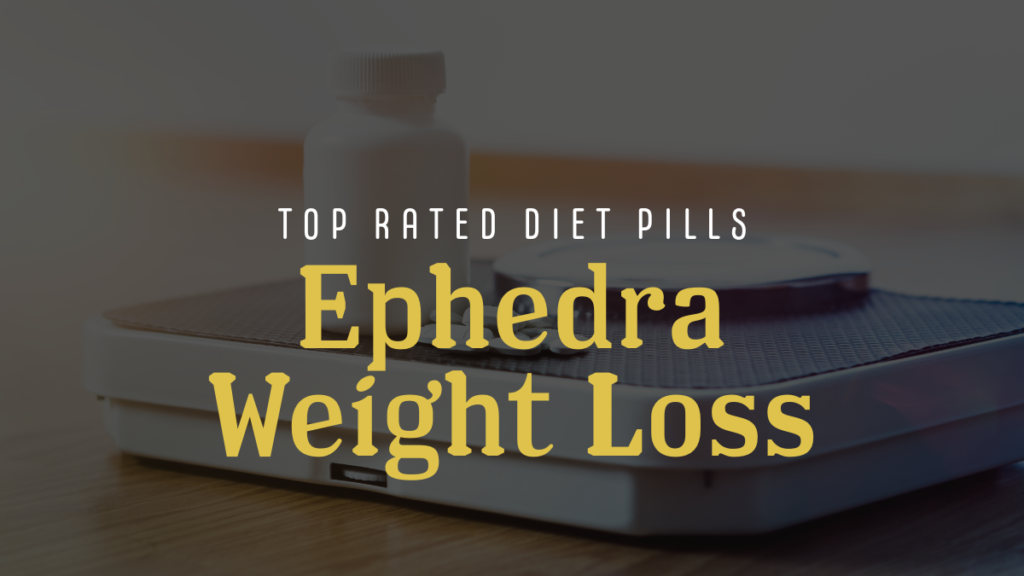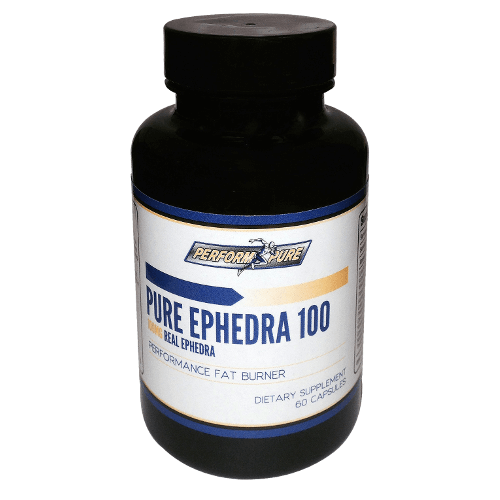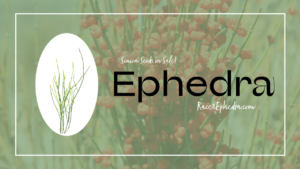Ephedra, also recognized by its traditional name ma huang, has been a staple in Chinese and Indian medicine for centuries, praised for its medicinal properties. It wasn’t until the early 1990s that ephedra began to gain traction in the United States, marketed for its ability to support weight loss and improve athletic performance. Despite being a natural source of the alkaloids ephedrine and pseudoephedrine, its applications extend beyond traditional uses, finding ground in modern obesity management and as a component in ma huang pills, distinguishing itself as a potent thermogenic agent.
This surge in popularity has led to an influx of research, with clinical trials and systematic reviews delving into the best ephedra diet pills’ efficacy and safety. The scientific literature on ephedra weight loss supplements offers insightful revelations, providing a foundation for understanding both the potential benefits and risks associated with its consumption. As this article explores the top-reviewed ephedra diet pills, it not only examines their role in weight management but also navigates through the legal and regulatory landscape dictating their use.

Historical Overview of Ephedra
Ephedra, often recognized by its traditional name ma huang, has a storied history that spans millennia and continents. Its journey from ancient medicine to a modern weight loss supplement is both fascinating and complex.
- Origins and Traditional Uses:
- Ephedra, known as ma huang in Traditional Chinese Medicine (TCM), has been utilized for over 5,000 years.
- The herb was cataloged by the Chinese emperor Shen Nung around 2,700 BC, primarily used as a circulatory stimulant, diaphoretic, antipyretic, and for treating coughs.
- In TCM, the young stems and branchlets of the ephedra plant are used for medicinal preparations, which can be consumed in dried or liquid form, including tablets, capsules, or tea.
- Global Spread and Diverse Applications:
- Beyond China, ephedra species with medicinal value were identified in Greece, Russia, India, and the Americas, where they were used in religious ceremonies and to treat various ailments, including syphilis and gonorrhoea.
- The ecstatic experiences in religious ceremonies might have been due to the interaction between alcohol and ephedrine, the latter of which acts as a central nervous excitant.
- Ephedra species such as E.antisyphilitica, E. californica, and E. nevadensis were recognized by indigenous people in the Americas for their medicinal properties.
- Scientific Discovery and Modern Challenges:
- The active chemicals of Ma Huang, including ephedrine, were first isolated in 1887, marking a significant advancement in the understanding of the herb’s pharmacology.
- Despite its long history of use, ephedra faced scrutiny and eventual bans in various settings, including the Olympics, college athletics, and by the National Football League, due to health concerns.
- The FDA formally banned ephedra in 2004 after it was linked to 155 deaths and numerous health problems, prompting dieters and users to seek alternatives like guarana, bitter orange, and green tea extract.
This historical overview underscores the complexity of ephedra’s journey from ancient remedy to modern dietary supplement, highlighting both its medicinal value and the challenges it faces in contemporary health and regulatory landscapes.
Buy 100mg Ephedra Dosage Products

Get the best selection of ephedra weight loss pills online at Racer Ephedra. Shop now for low prices and fast shipping. Achieve your goals with our premium formulations—trusted by fitness enthusiasts worldwide.
The Science Behind Ephedra Diet Pills
Ephedra diet pills have been the subject of numerous studies, aiming to understand their effects on weight loss and athletic performance. Here’s a breakdown of the science behind these supplements:
Weight Loss Efficacy
- Short-term Benefits: Studies have shown that ephedra-containing dietary supplements can lead to modest short-term weight loss, averaging about two pounds per month more than a placebo. However, the long-term effects remain unknown.
- Enhanced Metabolic Rate: Ephedrine, a key component, increases the number of calories burned, contributing to weight and fat loss over weeks to months. Notably, the combination of ephedrine and caffeine has been found to exert greater effects than either ingredient alone, promoting increased metabolic rate and fat loss.
- Clinical Outcomes: Ephedra-containing products have significantly decreased body weight in obese or overweight patients, with a mean difference of -1.97 kg. Additionally, ephedrine-containing products have been associated with improvements in blood lipid profiles, including higher mean HDL-C concentration and lower mean LDL-C and TG concentrations.
Athletic Performance and Risks
- Performance Enhancement: Despite its popularity among athletes, there is no evidence to support that ephedra or ephedrine improves long-term physical performance. The ECA stack (ephedrine, caffeine, and aspirin) is said to boost performance, but its long-term benefits and safety are not well-documented.
- Potential Side Effects: Ephedrine supplements can cause autonomic hyperactivity, gastrointestinal problems, and psychiatric symptoms. Additionally, the long-term use of aspirin, part of the ECA stack, has been associated with an increased risk of gastrointestinal bleeding.
Additional Considerations
- Health Applications Beyond Weight Loss: Ephedra is used for a variety of conditions including asthma, allergies, and colds due to its stimulation of the heart, lungs, and nervous system. It has also been studied for its potential anticancer, anti-inflammatory, and antidiabetic activities.
- Safety Concerns: The combination of stimulants in ephedra diet pills raises concerns about increased heart rate, high blood pressure, insomnia, and anxiety. These effects highlight the importance of cautious use and consideration of individual health status before consumption.
In summary, while ephedra diet pills show promise for short-term weight loss and metabolic enhancement, their long-term effects, particularly on athletic performance and health, remain unclear. Consumers should weigh the benefits against potential risks and consult healthcare professionals before incorporating these supplements into their regimen.

Top Reviewed Ephedra Diet Pills
In the quest for the best ephedra diet pills, it’s crucial to approach the topic with a critical lens, particularly in light of the available scientific evidence and health considerations. Here’s a concise analysis:
- Efficacy in Weight Loss:
- Despite the popularity of ephedra diet pills, there is a notable lack of robust proof supporting their effectiveness in aiding weight loss. This gap in evidence suggests that while some users may report positive outcomes, these are not consistently backed by scientific data.
- Health Considerations:
- Beyond the question of efficacy, potential users must weigh the health implications of ephedra diet pills. These products, while natural, are not free from health risks. Some ephedra alternatives may introduce health considerations of their own, ranging from mild side effects to more severe health risks.
- A Balanced Perspective:
- Given the mixed evidence on efficacy and the potential for health risks, individuals considering ephedra diet pills for weight loss should proceed with caution. Consulting healthcare professionals and reviewing scientific literature can provide a more balanced understanding of both the potential benefits and risks.
This analysis underscores the importance of informed decision-making when considering ephedra diet pills for weight loss. While the allure of quick results is understandable, the health implications and lack of conclusive evidence for efficacy highlight the need for a cautious approach.
| Top Rated | Dosage | Ingredient |
| Diablos ECA | 50mg | Ephedra Extract |
| Green Stinger | 50mg | Ephedra Extract |
| Hydroxytrol | 50mg | Mahuang Ephedra Extract |
| EPH 100 | 100mg | Ephedra viridis |
| Lipodrene | 25mg | Ephedra extract |
Potential Risks and Side Effects
- Common Side Effects:
- Ephedra and ephedrine can lead to nausea, vomiting, jitteriness, and palpitations, making their consumption uncomfortable for many individuals.
- More severe reactions include high blood pressure, heart attacks, seizures, strokes, and irregular heartbeat, which can be life-threatening.
- The combination of ephedra with other stimulants like caffeine significantly magnifies the risk of these severe side effects.
- Catastrophic Health Events:
- There have been documented instances where the use of ephedra has resulted in sudden death, heart attack, or stroke, highlighting the potential for catastrophic health events.
- These serious outcomes have prompted further evaluation of ephedra products’ safety, especially given the number of deaths, myocardial infarctions, cerebrovascular accidents, seizures, and serious psychiatric illnesses reported in young adults.
- The FDA has received over 1,500 adverse-event reports related to ephedra and 125 on products containing ephedrine, underscoring the significant health risks associated with these substances.
- Regulatory Actions and Recommendations:
- Due to these severe side effects and interactions with other medications, ephedra supplements have been banned from the U.S. market.
- The FDA’s ban encompasses dietary supplements containing ephedra, ephedrine, norephedrine, ma huang, Sida cordifolia, or pinellia, aiming to protect consumers from potential harm.
- It is strongly advised that ephedra should only be used under the guidance and supervision of an appropriately-trained specialist, and individuals under the age of 18, those taking medications for high blood pressure or depression, and women who are pregnant or breastfeeding should avoid its use entirely.
Legal and Regulatory Status
In light of the significant health concerns associated with ephedra and its alkaloids, the legal and regulatory status of these substances has undergone substantial changes over the years. Here’s a detailed look at the current landscape:
- FDA Bans and Advisories:
- 2004 Ban on Ephedrine Alkaloids: The U.S. Food and Drug Administration (FDA) implemented a ban on dietary supplements containing ephedrine alkaloids in 2004, citing safety concerns as the primary reason. This decision was based on reports of adverse effects, including deaths linked to these substances.
- Consumer Advisory: Following the ban, the FDA strongly advised consumers to cease using products containing ephedra immediately, reinforcing the agency’s commitment to public health.
- Exceptions and Legal Availability:
- Medical Use: Despite the ban on dietary supplements, ephedrine can still be legally obtained for certain medical purposes, such as treating allergic disorders and preventing drops in blood pressure during anesthesia, where its benefits are considered to outweigh the risks.
- Ephedra Extracts Without Ephedrine: Not all ephedra products were affected by the FDA’s ban. Ephedra extracts that do not contain ephedrine are still legally sold, highlighting a nuanced approach to regulating different components of the plant.
- Regulation and Enforcement:
- Dietary Supplement Regulation: Products containing herbal ephedra are classified as dietary supplements under the Dietary Supplement Health and Education Act of 1994 (DSHEA). This act presumes such supplements to be safe, but the FDA retains the authority to restrict use or ban sales if a product is convincingly demonstrated to be unsafe.
- Marketing Restrictions: The sale of adulterated dietary supplements, which includes those with unsafe levels of ephedrine alkaloids, is illegal. This underscores the importance of compliance with safety standards and accurate product labeling.
This regulatory framework emphasizes the FDA’s role in safeguarding public health while allowing for certain legal uses of ephedrine under controlled conditions. Consumers and manufacturers alike are urged to adhere to these regulations to prevent health risks and ensure the safe use of ephedra-related products.
Conclusion
Throughout this exploration, we’ve uncovered the multifaceted narrative of ephedra, from its deep-rooted history in traditional medicine to its modern-day revival as a weight loss and performance-enhancing supplement. The blending of ancient wisdom with contemporary scientific inquiry has revealed both the potential benefits and significant risks tied to ephedra diet pills. Crucially, the scientific insights into its efficacy for weight loss and metabolic enhancement, juxtaposed with the potential for serious health implications, foreground the importance of informed decision-making and the cautious use of these supplements.
In light of the prevailing research and regulatory guidelines analyzed, it is paramount for individuals considering ephedra for their weight management or athletic endeavors to navigate this landscape with mindfulness of the legal stipulations and health advisories. The journey of ephedra, marked by extensive scrutiny and evolving regulation, serves as a critical reminder of the necessity to prioritize safety and efficacy, underscoring the significance of consulting healthcare professionals before embarking on the use of ephedra or any dietary supplements. This discourse not only brings closure to the intricate saga of ephedra but also opens avenues for further research and reflection on the interplay between natural substances and health optimization.
FAQs
Currently, there are no “People Also Ask” questions and answers provided to rephrase for this topic. If you have specific questions about ephedra diet pills for weight loss or any other topic, feel free to provide them, and I can assist with creating a set of FAQs.
References
Ephedra and Ephedrine Alkaloids for Weight Loss and Athletic Performance https://ods.od.nih.gov/factsheets/EphedraandEphedrine-HealthProfessional/
Ephedra Is It Worth the Risk? Published 2003 by Paul G. Shekelle, Sally C. Morton, Mary L. Hardy, Margaret A. Maglione, Marika Booth, Elizabeth Roth, Lara Hilton, Walter Mojica, James Gagne, Shannon Rhodes, et al. DOI: https://doi.org/10.7249/RB4556
Dietary Supplements for Weight Loss https://ods.od.nih.gov/factsheets/WeightLoss-HealthProfessional/
Yoo, Hee-Jeong, Ha-Young Yoon, Jeong Yee, and Hye-Sun Gwak. 2021. “Effects of Ephedrine-Containing Products on Weight Loss and Lipid Profiles: A Systematic Review and Meta-Analysis of Randomized Controlled Trials” Pharmaceuticals 14, no. 11: 1198. https://doi.org/10.3390/ph14111198
A Review on Worldwide Ephedra History and Story: From Fossils to Natural Products Mass Spectroscopy Characterization and Biopharmacotherapy Potential https://doi.org/10.1155/2020/1540638
Small Entity Compliance Guide: Final Rule Declaring Dietary Supplements Containing Ephedrine Alkaloids Adulterated Because They Present an Unreasonable Risk https://www.fda.gov/regulatory-information/search-fda-guidance-documents/small-entity-compliance-guide-final-rule-declaring-dietary-supplements-containing-ephedrine




